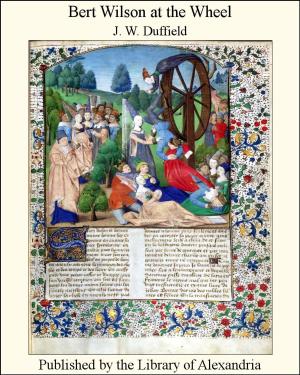The Spirit of St. Francis de Sales
Nonfiction, Religion & Spirituality, New Age, History, Fiction & Literature| Author: | Jean-Pierre Camus | ISBN: | 9781465623164 |
| Publisher: | Library of Alexandria | Publication: | March 8, 2015 |
| Imprint: | Language: | English |
| Author: | Jean-Pierre Camus |
| ISBN: | 9781465623164 |
| Publisher: | Library of Alexandria |
| Publication: | March 8, 2015 |
| Imprint: | |
| Language: | English |
Blessed Francis de Sales thought very little of any virtue unless it was animated by charity; following in this the teaching of St. Paul, who declares that without charity the greatest virtues are as nothing. Thus, even the faith which works miracles, the almsgiving which leads a man to sell all his goods to feed the poor, the spirit of martyrdom which impels him to give his body to be burned, all, if without charity, are nothing. That you may clearly understand the distinction which he drew between the natural excellence of certain virtues, and the supernatural perfection which they acquire by the infusion of charity, I will give you his exact words on the subject, as they are to be found in his Treatise on the Love of God. He says: "The light of the sun falls equally on the violet and the rose, yet will never render the former as fair as the latter, or make a daisy as lovely as a lily. If, however, the sun should shine very clearly upon the violet, and very mistily and faintly upon the rose, then without doubt it would make the violet more fair to see than the rose. So, Theotimus, if with equal charity one should suffer death by martyrdom, and another suffer only hunger by fasting, who does not see that the value of this fasting will not, on that account, be equal to that of martyrdom? No, for who would dare to affirm that martrydom is not more excellent in itself than fasting…. Still, it is true that if love be ardent, powerful, and excellent, in a heart, it will also more enrich and perfect all the virtuous works which may proceed from it. One may suffer death and fire for God, without charity, as St. Paul supposes, and as I explain elsewhere. Still more then may one suffer them with little charity. Now, I say, Theotimus, that it may come to pass that a very small virtue may be of greater value in a soul where divine love fervently reigns, than martyrdom itself in a soul where love is languishing, feeble, and dull. Thus, the least virtues of our Blessed Lady of St. John, and of other great Saints, were of more worth before God than the most exalted perfections of the rest of His servants."
Blessed Francis de Sales thought very little of any virtue unless it was animated by charity; following in this the teaching of St. Paul, who declares that without charity the greatest virtues are as nothing. Thus, even the faith which works miracles, the almsgiving which leads a man to sell all his goods to feed the poor, the spirit of martyrdom which impels him to give his body to be burned, all, if without charity, are nothing. That you may clearly understand the distinction which he drew between the natural excellence of certain virtues, and the supernatural perfection which they acquire by the infusion of charity, I will give you his exact words on the subject, as they are to be found in his Treatise on the Love of God. He says: "The light of the sun falls equally on the violet and the rose, yet will never render the former as fair as the latter, or make a daisy as lovely as a lily. If, however, the sun should shine very clearly upon the violet, and very mistily and faintly upon the rose, then without doubt it would make the violet more fair to see than the rose. So, Theotimus, if with equal charity one should suffer death by martyrdom, and another suffer only hunger by fasting, who does not see that the value of this fasting will not, on that account, be equal to that of martyrdom? No, for who would dare to affirm that martrydom is not more excellent in itself than fasting…. Still, it is true that if love be ardent, powerful, and excellent, in a heart, it will also more enrich and perfect all the virtuous works which may proceed from it. One may suffer death and fire for God, without charity, as St. Paul supposes, and as I explain elsewhere. Still more then may one suffer them with little charity. Now, I say, Theotimus, that it may come to pass that a very small virtue may be of greater value in a soul where divine love fervently reigns, than martyrdom itself in a soul where love is languishing, feeble, and dull. Thus, the least virtues of our Blessed Lady of St. John, and of other great Saints, were of more worth before God than the most exalted perfections of the rest of His servants."















